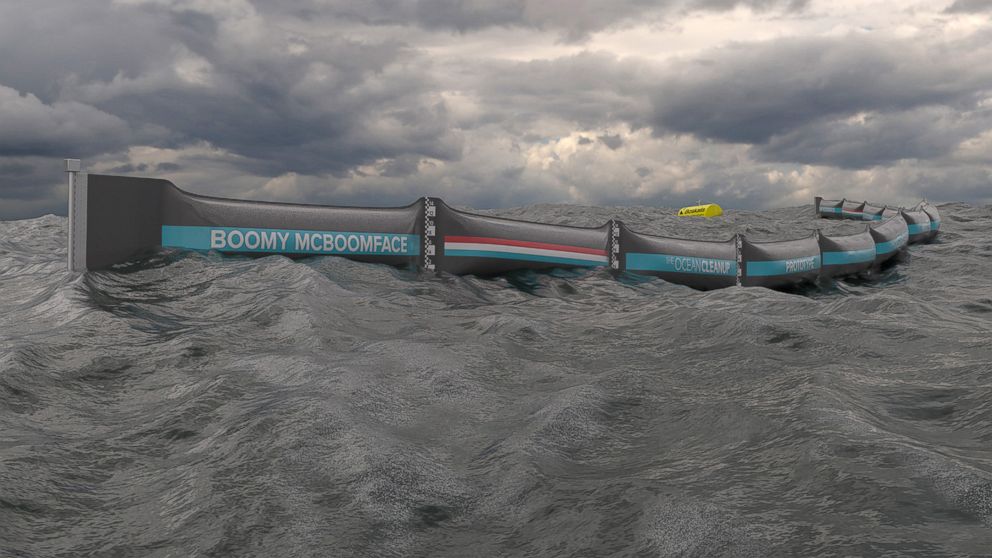Massive Ocean Garbage Collector to Be Tested in North Sea

— -- A Dutch foundation aimed at removing plastic pollution from the world’s oceans launched a prototype of a new clean-up system yesterday in the North Sea.
The prototype is a 100-meter long barrier system, "which acts as an artificial coastline, passively catching and concentrating ocean debris," The Ocean Cleanup, a foundation co-sponsored by the Dutch government and marine contractor Royal Boskalis Westminster N.V., announced in a statement. .
The system -- the first ocean cleanup system to actually be tested at sea -- will go through its trial run in the North Sea, 12 nautical miles from the coast of the Netherlands, an Ocean Cleanup spokesperson told ABC News. The goal is to track how the passive barrier fares in extreme weather conditions, which are more common in the North Sea than in the Pacific Ocean.
Though the foundation estimates there's a 30 percent chance the barrier system will break under the harsh conditions, this prototype is a step towards building a 100-kilometer-long ocean garbage collector that the group plans to deploy in 2020 to clean "The Great Pacific Garbage Patch." The massive area in the Pacific Ocean between California and Hawaii contains the largest accumulation of trash in the ocean and has been the center of many other cleanup efforts.
The massive marine cleaner-upper is shaped like the letter "V" and meant to work with the natural ocean currents to collect garbage that can then be extracted and brought ashore for recycling, the spokesperson explained.
Boyan Slat, the CEO of the Ocean Cleanup, founded the project in 2013 and largely relied on crowdfunding at first to launch his environmental initiative.
Slat became the youngest winner of the United Nation's prestigious Champions of the Earth Award in 2014 for his ocean cleaning efforts.
“The Ocean Cleanup is an inspiring example of how we can tackle the growing problem of ocean pollution. I hope that with the help of the Dutch government, Boyan’s prototype will turn out to be the successful solution for cleaning up the mid-ocean gyres," Dutch Environment Minister Sharon Dijksma said in a statement. "This is crucial to prevent permanent damage to the environment and marine life, due to the degradation and fragmentation of plastic waste materials.”
The ocean currently contains over 150 million metric tons of plastic, according to a report released by the World Economic Forum and the Ellen MacArthur Foundation earlier this year.
The report also warned that if no action is taken, there could be more plastic in the ocean than fish by the year 2050.



